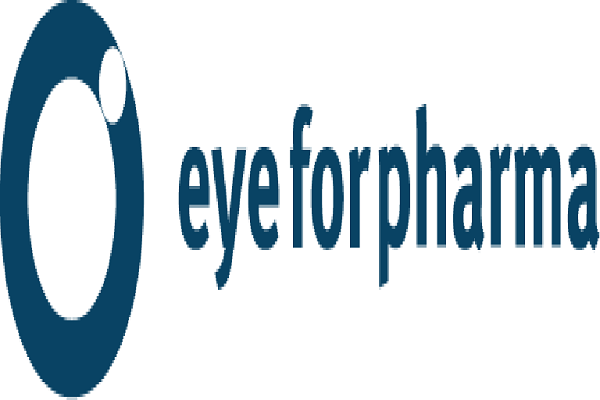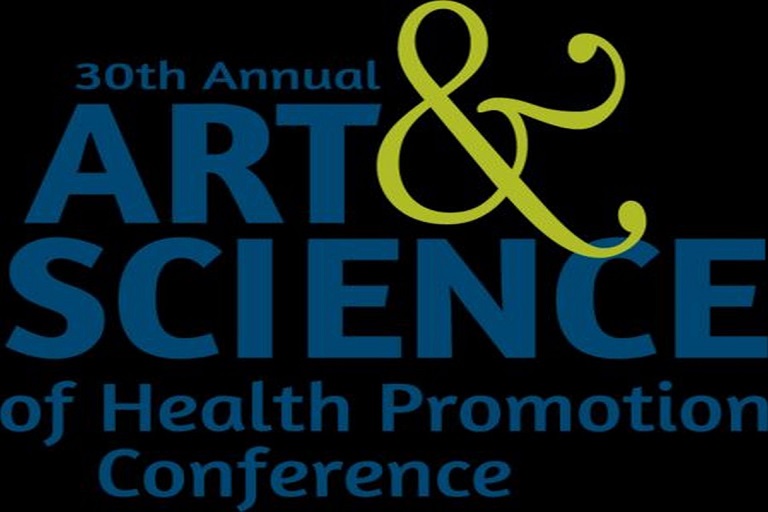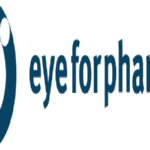David Hayes sat 3 feet away as Dr. Steven Bailey swiveled on a stool to look him in the eyes, then spun back to stare at a computer screen.
Bailey’s computer told him that Hayes, a 60-year-old Omaha restaurateur, was due for a colonoscopy next year and reminded him to talk about immunizations.
“And you’re now a candidate for the shingles vaccination,” said Bailey, a Methodist Physicians Clinic internal medicine doctor. “You want to get that?”
“Should I?” Hayes asked.
“Yes.”
Bailey tapped the computer keyboard, serving as secretary and doctor at once.
The presence of electronic medical records is increasingly common and even inevitable for patients, doctors and hospitals. The American Academy of Family Physicians reports that more than 80 percent of family docs have converted to electronic records, up from 29 percent in 2005.
So patients and doctors now have opinions about electronic records, which not only conform to a digital movement in many industries, but also to the federal government’s direction. The government has helped fund the transition and eventually will penalize many who don’t convert.
Reviews by patients and doctors so far are mixed.
Some doctors say they see fewer patients in a day because federal rules for the use of electronic records require them to cover a long checklist of material, making it harder for patients to get appointments. A computer shutdown can cause havoc. And patients may have less eye contact with their practitioners, who click away on keyboards during appointments. Some patients have security concerns.
But they also have the comfort of knowing that their records typically are more accessible to their doctor and more legible, and that lab results are more easily shared among primary doctors and specialists. If hospitals are on the same system — and the Nebraska Medical Center and Children’s Hospital & Medical Center already are, with Alegent Creighton hospitals joining them on a system called Epic in April — they can quickly view a patient’s record across those hospitals.
During a recent appointment with patient Greg Gentile, Dr. Randy Pritza positioned his computer with the use of a flexible metal arm so he could almost look straight at Gentile.
They talked about his elevated cholesterol, a “pretty big leap,” the doctor said, asking: “Have you been eating out more often?”
Gentile, 58, was perplexed. He is diligent about his diet and medication because he has had quadruple heart bypass surgery. Pritza, an Alegent Creighton Clinic cardiologist, recommended that Gentile, a coach and building/grounds director in Springfield public schools, get his cholesterol checked again in the spring.
Gentile later marveled at the way his general practitioner, who also is tied to Alegent Creighton Health, can promptly convey information electronically to Pritza and vice versa. Gentile can call up his own information, too, through a “patient portal” available through Alegent.
Methodist’s Bailey likes the way he and other physicians in his group can aggregate diabetic patients. That way, their “health coaches,” or nurses, can call struggling patients, get them in for appointments and encourage them to exercise and eat right.
Sorting through paper records to find diabetic patients and to see who needed a nudge would be far more laborious, Bailey said.
Hospitals and doctors have gotten a push from the federal government to switch to electronic records. Under Medicare, doctors could receive up to $44,000 over five years if they demonstrated “meaningful use” of electronic records. To receive that maximum amount, they had to start participating by 2012.
Beginning next year, doctors who can’t demonstrate “meaningful use” will receive a 1 percent cut in payment for Medicare-covered services, and another 1 percent in each of the following four years as well.
Meaningful use involves meeting a litany of objectives, including using the record for prescriptions; to make drug allergy and drug interaction checks; to track a patient’s diagnoses; to maintain a patient’s medication list; to record changes in blood pressure; to record smoking status; and many other elements. In many cases it’s more information than doctors were routinely recording on paper.
Dr. Robert Wergin, president-elect of the American Academy of Family Physicians, said his 10-physician group, which serves Seward, Utica and Milford, Neb., initially had to cut back its schedule by half when it went to electronic records about 18 months ago.
Wergin said he’s still not able to see as many patients as before. “It was a difficult transition for me personally,” said Wergin, 59. “But I’ve accepted it.”
Wergin wasn’t the only doctor who said he sees fewer patients because of the demands placed on him to record many items on the electronic record. Many doctors complete their electronic notes between patient visits.
Dr. Harry Klein, an internal medicine doctor, said he sees about two fewer patients a day than he used to. “It slows you down because you have to put in more information,” he said.
It’s expensive, too. Klein, whose Omaha Internal Medicine in northwest Omaha includes two other physicians and a physician assistant, paid about $150,000 for a lease-to-own system when the clinic converted more than four years ago.
He said his two physician partners have wrist and neck pain from using a computer keyboard and looking up and down all day while typing into the record. They call their computers “cows” because they wheel them in on carts — computers on wheels.
But Klein said his clinic no longer spends about $50,000 a year for transcription fees and now has two front-office staffers instead of three because filing records is no longer necessary.
Dr. Douglas Russell, an internal medicine doctor who practices in Omaha with a physician assistant, said the demands of meaningful use “have made us less efficient at seeing patients.”
The electronic record also enables the government and insurers to monitor physicians more closely and to determine whether they remain in certain networks, he said.
“This is about control, and it’s about money,” Russell, 49, said of electronic records. “There’s some good things here and there’s some bad things, and there’s a lot of headaches.”
It’s a headache when the electronic records system temporarily goes down. An Omaha Public Power District outage on Nov. 29 affected the Nebraska Medical Center’s record and the hospital directed ambulance traffic elsewhere for about four hours.
An Alegent Creighton endocrinology clinic had to slow patient traffic and stop making appointments for a while on Jan. 9 because of software problems. An Alegent Creighton spokeswoman said the problem persisted about 45 minutes.
A Northwestern University study found that doctors using electronic records during patient exams spend less time looking at the patient. The study suggested that the doctor may miss unspoken cues, such as frowns or nods, that enhance communication.
“I guess I’m not worried about that,” said Joan Brachtenbach, 76, of Omaha, a retired nurse who recalls her worry that what appeared to be a zero on a patient’s chart might actually be an eight or a nine. “Doctors have been long famous for the illegibility in their handwriting.”
Handwritten instructions can lead to confusion over what drug is being ordered, which can have grave consequences, Brachtenbach said. The new systems shoot a prescription electronically to a pharmacy without having to worry about a piece of paper that may get lost or that a pharmacist might struggle to read.
And many providers rave about electronic records. “The biggest issue is this: I never have to look for a chart,” said Dr. Mark W. Woodruff, a family physician who works with another physician and four other providers. “And I never have to look for a piece of paper that’s fallen out of a chart. … I absolutely love it.”
Dr. Corey Joekel, a pediatric emergency medicine doctor at Children’s, called his hospital’s system “seriously cool.” In the 1990s, he said, doctors had to request old records from a nearby warehouse. Now old records are “just a click or two away. It’s fabulous,” said Joekel, 55. “I’m a believer.”
Helen McGill, 79, uses an iPad that her children gave her, but the notion of electronic records strikes her as cold and impersonal. “I’m older and I’m not used to it,” the Council Bluffs resident said. “I don’t want to be a number.”
For now, she has opted out of the Nebraska Health Information Initiative, which is a secure system in which hospitals and doctors share patients’ records. She doesn’t want her medical information available to so many practitioners.
“I don’t like everybody knowing everything about me,” McGill said.
Frank Sleder, 23, has mixed feelings about electronic records. The Omahan, a bicycle mechanic, said that “less paper is a good thing.” But he’s not convinced by the medical industry’s assurances that his electronic records are secure. “There’s back doors into basically any system.”
For patients with privacy and security concerns, Dr. Pritza recalls a time several years ago when he drove back and forth between his Council Bluffs and Omaha offices with paper records in a suitcase. Security concerns with that suitcase were abundant.
“That’s a lot of moving paper. It stunk. Now we don’t have to move anything.” He just takes his stethoscope with him.
Dr. Robert L. Recker and his six physician partners are headed there.
Their clinic, near 78th Street and Mercy Road, has maintained paper records but plans to execute the switch this year.
Recker, 48, knows it will be expensive. He knows getting up to speed will be painful. He knows productivity will drop early on.
He also knows it’s time.
“I want to get the pain over with,” he said, “so we can actually get to the beneficial stuff.”
Nebraska records initiative a work in progress
About a third of the state’s physicians are connected to the system, as well as many of its large hospitals.
Leaders of a state initiative to link patient records through a common system say they are making progress but have a long way to go.
The initiative, commonly called NeHII — for Nebraska Health Information Initiative — started in 2009.
Iowa and states across the nation have similar programs underway. The Iowa Health Information Network began in 2012.
As clinics and hospitals purchase their own electronic records systems, many of which don’t interface with one other, NeHII helps bridge the gap.
NeHII currently has Omaha’s main hospitals connected to its system but not Lincoln’s two main hospitals, Bryan Medical Center and St. Elizabeth Regional Medical Center.
Deb Bass, chief executive officer of the initiative, said about one-third of the state’s approximately 3,500 physicians are connected to NeHII. Twenty-six of Nebraska’s approximately 90 hospitals are connected, including many large hospitals, so that more than half of the state’s hospital beds are accounted for.
NeHII hopes to eventually connect all Nebraska physicians and hospitals so that providers can see what treatments patients have undergone, what medications they are on and what diagnostic scans they have received recently. Patients who don’t want their records in the exchange may opt out.
The record-sharing prevents medication errors, duplication of scans and lab tests and helps doctors better understand the patient’s medical history.
A University of Michigan study last year found that such information exchanges reduce repeat imaging (such as CT scans and X-rays) and produce cost savings.
Logging on to the Nebraska system may take only a few seconds, but it also can take longer, NeHII leaders said.
Dr. Harris Frankel, president of the NeHII board, said some doctors see that as another step in a workday already packed with patients and federal demands that doctors perform checklists when seeing patients.
Nevertheless, he said, “there is power in information,” and patients can receive better care when doctors have a more complete record of their medical histories.
Dr. Bob Rauner, a Lincoln physician and medical director of nine clinics across Nebraska, said his clinics aren’t yet connected. There are not enough Lincoln-area providers to make it worth his while, he said.
“It’s incomplete right now,” Rauner said. “For the ER (emergency room) docs in Omaha, it’s very helpful.”
Bass said she is constantly adding providers and has connected to NeHII hospitals in Hastings, North Platte, Scottsbluff and many other places.
Doctors pay $20 a month to connect, small hospitals pay $750 a month and big hospitals pay $12,000 a month. Blue Cross Blue Shield and Coventry Health Care help sponsor the program. The state has received $6.8 million from the federal government to implement the health information program, Bass said.
Dr. Harry Klein, an Omaha internal medicine physician, said he hasn’t subscribed to NeHII yet. Klein said he doesn’t know enough about what information is available and how secure it is.
“I think eventually we’ll get tied to it,” he said. “I’m just not sure when.”
























































